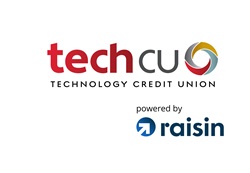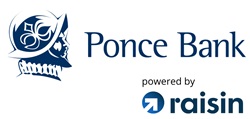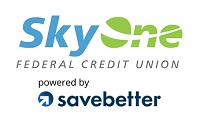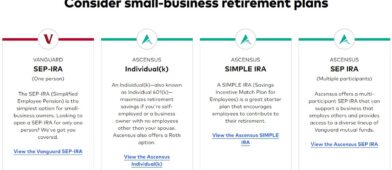With interest rates rising, many investors want to take advantage of the highest deposit rates they’ve seen in years. Since there’s no guarantee that current rates will remain at their current level, many would are looking to Certificates of Deposit (CDs) because they offer an opportunity to lock in current rates for as long as five years (or even more!).
But one of the challenges for savers is that rates continue to rise. You don’t want to lock your funds into a CD if the rate is going to go up at the next FOMC meeting! (and penalties for withdrawing early tend to be quite steep)
Fortunately, there is a solution – no-penalty certificates of deposit.
A no-penalty CD lets you withdraw some or all your funds from the certificate before the maturity date without paying an early withdrawal penalty. The terms will dictate what you are able to do, so read those carefully. This gives you the flexibility to liquidate the certificate and put it into a higher-yielding instrument later on.
There is often a trade-off though – the increased flexibility means that the rates may be slightly lower than for regular-term CDs of the same maturity period.
But if you want to combine a competitive rate with liquidity, it’s hard to beat no-penalty CDs.
If you’re wondering what kind of interest you can earn on a no-penalty CD, here is our list of the best rates available today.
Want to make $100 – $300 for opening a bank account?
Can you get your paycheck direct deposited?
If so, you can often get hundreds of dollars to open a new bank account. Banks are constantly competing for business and this is a great way to put cash in your pocket. I’ve heard from several readers that they’ve made thousands of dollars doing this.
Banks like Chase, Citi®, Discover, and others will give you $100 to $300 if you open a bank account and get your paycheck direct deposited into your new account.
👉 Find out which banks will pay you $100+ to open a new account
Table of Contents
- No-Penalty CDs: Rate Summary
- Best No-Penalty CD Rates
- Technology CU – 5 Month, 5.36% APY
- Ponce Bank – 4-Month, 5.30% APY
- Blue FCU – 9-Month, 4.85% APY
- mph.bank – 6-Month, 4.92% APY
- CIT Bank – 11-Month, 4.90% APY
- First Mid Bank & Trust – 12-Month, 4.82% APY
- SkyOne FCU – 12-Month, 4.75% APY
- Ally Bank – 11-Month, 4.25% APY
- Marcus by Goldman Sachs – 13-month, 4.70% APY
- Citi® – 12-Month, 4.05% APY
- Synchrony Bank – 11-Month, 3.90% APY
- Important Facts about No Penalty CDs
- No Penalty CD Frequently Asked Questions
- Final Thoughts on No Penalty CDs
🔃Updated April 2024: Updated with current interest rates and re-ordered the table to reflect the new rates and proper ordering. We also added information about the latest yield results from Treasury auctions and how that informs what you might wish to do (lock in rates now). The top rate now is a 5.36% APY from Technology Credit Union through the Raisin platform.
No-Penalty CDs: Rate Summary
These are ordered in roughly the highest rate and terms first but rates change all the time so sometimes the table won’t be perfectly ordered.
Also, it’s hard to compare given differing terms and rates so read the whole table to find the best one for your needs.
⏰ Should I wait to open a no penalty CD? After the last few Federal Reserve rate increases, we saw banks increase their no penalty CD rates fairly aggressively. Now that we’ve been through a few FOMC meetings without a rate hike, we’re starting to see banks standing pat on their rates.
I believe this is in part because of the U.S. Treasury yields for longer maturities are not going up. These prices are set at auction and posted on TreasuryDirect. We see that the yields on 26-week bills at around 5.045% and 2-3 year notes at around 4.31-4.49%. These rates are lower than a few months ago.
If you are interested in a no-penalty CD rate, I’d lock them in today just to be safe because we’re seeing rates slide. You can always withdraw it and opened a new one if they go up.
| Bank Name | CD Term | CD Rate | |
|---|---|---|---|
| Tech CU | 5 Month | 5.36% APY | Learn more |
| Ponce Bank | 4-Month* | 5.30% APY | Learn more |
| Blue FCU | 9-Month | 4.85% APY | Learn more |
| mph.bank | 6-Month | 4.92% APY | Learn more |
| First Mid Bank & Trust | 12-Month | 4.82% APY | Learn More |
| SkyOne FCU | 12-Month | 4.75% APY | Learn more |
| CIT Bank | 11-Month | 4.90% APY | Learn more |
| Ally Bank | 11-Month | 4.25% APY | Learn more |
| Marcus by Goldman Sachs | 13-month | 4.70% APY | Learn more |
| Citi® | 12-Month | 4.05% APY | Learn more |
Best No-Penalty CD Rates
Below are some of the best banks currently offering the highest no-penalty CD rates.
All rate quotes and terms are accurate as of the publishing date but are subject to change, so confirm on the bank’s website.
SkyOne FCU, Technology CU, Western Alliance Bank and several other banks on this list offer these high rates through the Raisin platform (formerly known as SaveBetter). With Raisin, you open an account with Raisin and get the higher rate through them. Your account is managed through Raisin but the funds are still at the bank and get FDIC insurance. You don’t get an account number at the bank though, it’s all grouped together with other Raisin customers, but it’s still insured and protected. The benefit is that you get higher rates and can easily move it between partner banks to get even higher rates. Raisin negotiates these higher rates because they can get deposits for the bank much cheaper than their own marketing efforts.
Click here to learn more about how Raisin works.
Technology CU – 5 Month, 5.36% APY

Technology CU has a 5 Month no penalty CD yielding 5.36% APY right now, available through the Raisin platform.
It’s also through Raisin so no membership requirements, and we list it here despite there being a higher offer just so you know the platform has a lot going on.
With a minimum of just $1 and no penalty for early closure, it’s a good deal worth looking at.
Ponce Bank – 4-Month, 5.30% APY

You can get the 4-Month CD with an interest rate of 5.30% APY.
You can open a CD with a minimum deposit of just $1 and no maintenance fees.
New York City-based Ponce Bank began operating in 1960. As a Community Development Financial Institution (CDFI), the Bank works as an investor in the future of underserved and under-banked communities. But they make their savings products available to consumers nationwide.
Ponce Bank also offers checking, savings, and retirement accounts, complete with access to online banking. They also provide business banking, residential mortgages, home equity lines of credit, and consumer loans.
Blue FCU – 9-Month, 4.85% APY
Blue Federal Credit Union is a credit union founded in 1951 with locations in Colorado and Wyoming but through the Raisin platform, anyone can take advantage of their high rates. Blue FCU traces its roots to the Air Force, having started as Warren Federal Credit Union on F.E. Warren Air Force Base.
They currently offer a 4.85% APY no-penalty CD with a rate of 9-Month, one of the highest available (only beaten by the 1 month offer above).
It is NCUA insured and you can close it at anytime (after the first 7 days) without paying a penalty. Minimum opening deposit is just $1 and interest is compounded daily and credit at the end of the month.
mph.bank – 6-Month, 4.92% APY
mph.bank, through the Raisin platform, has a 6-Month no-penalty CD that yields a 4.92% APY. mph.bank is the online bank of Liberty Savings Bank, which also offers higher interest rates through Raisin, but separately has a bonus offer directly through mph.bank.
You can open a CD with a minimum deposit of just $1 and no maintenance fees.
CIT Bank – 11-Month, 4.90% APY
CIT Bank’s No-Penalty, 11-Month CD is paying 4.90% APY, compounded daily, and requires a minimum deposit of $1,000. There is no penalty if you access funds before the CD matures.
CIT Bank also offers their interest-bearing eChecking account, currently paying from 0.10% APY to 0.25% APY and a High-Yield Money Market account paying 1.55% APY. They also offer term CDs, which top off at 0.50% APY on a 60-month certificate.
First Mid Bank & Trust – 12-Month, 4.82% APY
First Mid Bank & Trust, through the Raisin platform, has a 12-Month no penalty CD yielding 4.82% APY. This is now the top offer because it has a slightly higher APY than FVCbank and is for the same term.
Since most of the top rates for no penalty CDs are on Raisin, you can easily move them around and chase the highest rate without having to deal with opening brand new accounts.
You can open a CD with a minimum deposit of just $1 and no maintenance fees.
SkyOne FCU – 12-Month, 4.75% APY

SkyOne FCU has a 12-Month no penalty CD yielding 4.75% APY right now, available through the Raisin platform.
With a minimum of just $1 and a nice term of twelve months, with the flexibility of no penalty.
It’s a federal credit union but because we are working with Raisin, anyone is eligible for this rate and you do not have to meet any special membership criteria.
Ally Bank – 11-Month, 4.25% APY
Ally Bank offers has an 11-Month No Penalty Certificate of Deposit. The CD pays 4.25% APY, with no minimum deposit required to open a certificate. You can withdraw your entire balance, including interest, after the first six days of funding the CD.
Just as important, Ally Bank offers their Ten Day Best Rate Guarantee. You’ll get a better rate if rates rise within ten days of opening your CD.
Ally Bank offers interest checking, online savings, a money market, and their high-yield CD. But perhaps the most exciting CD product is their Raise Your Rate CD. They offer it in terms of two years and four years, but you’ll have an opportunity to raise the rate once during the two-year term or twice during the four-year term.
Ally is also a fully diversified financial firm, offering mortgages, personal loans, and some of the best auto loans in the business. But you can also benefit from self-directed or managed investments through Ally Invest.
Marcus by Goldman Sachs – 13-month, 4.70% APY
Marcus by Goldman Sachs offers their 13-month No-Penalty CD, currently paying 4.70% APY. The minimum deposit is $500, and there is no early withdrawal penalty beginning seven days after funding your certificate.
Marcus by Goldman Sachs is another well-diversified financial service provider. Their Online Savings Account currently pays 4.40% APY, while they also offer a High-Yield CD paying 4.90% APY for a 12-month term.
Marcus by Goldman Sachs also offers self-directed and managed investment accounts, IRAs, credit cards, and personal and home improvement loans.
Citi® – 12-Month, 4.05% APY
Citi offers their no-penalty CD for a full 12-Month. The certificate currently pays 4.05% APY, and the minimum initial deposit is just $500.
Citi is one of the largest banks in the US and provides full-service banking, including a full range of loan products and deposit accounts.
Their fixed-rate CDs have terms ranging between three months and five years. Rates vary based on maturities, but the best deal is on the 12-month CD, which currently pays 4.15% APY on all balance ranges.
Citi also offers their Accelerate Savings account, currently yielding 4.45% APY, and is available as long as you open a Citi checking account.
Synchrony Bank – 11-Month, 3.90% APY
Synchrony Bank might have the widest selection of high-yield CDs in the banking industry. Their 11-Month, No-Penalty CD is currently paying 3.90% APY with no minimum deposit required and no maintenance fees. You can withdraw funds without penalty after the first six days following funding your certificate.
Synchrony Bank’s CDs range from 3 to 36 months and pay interest of up to 4.30% APY. Their Bump-Up CD has a 24-month term, no minimum balance, and yields a bit less. It provides one-time flexibility to request a higher rate during the term.
Synchrony Bank also offers High-Yield savings, money market, IRAs, and credit cards.
Important Facts about No Penalty CDs
Before you open a no penalty CD from a bank, it’s important to know these details about them before you open an account:
- Withdrawal terms – Each CD’s withdrawal terms are different. Some CDs will let you withdraw some of your balance without closing the entire CD. Others will only allow you to withdraw the whole balance – know the difference.
- Minimum deposit – Many online banks will let you open a CD with just $1 but some will require at least $1,000. This is important because you can open multiple CDs at a single bank – so if the minimum is low, you can open multiple no penalty CDs at once.
- Maximum deposit – Some CDs have a maximum deposit amount because they want to limit how much you can earn at the higher interest rate. This is rarer but still possible.
These features are important because let’s say you have a bank that offers a no penalty CD where you can only withdrawal the entire balance. If the minimum is low, say $1, then you could divided your savings across several no penalty CDs.
Then, if you need access to your money, you simply withdraw from one CD and leave the rest.
For example, you have $5,000 you want to put in a no penalty CD. Split it up into five separate $1,000 CDs. If you need your cash, just close one and get access to your $1,000 while the remaining $4,000 accrue interest.
No Penalty CD Frequently Asked Questions
No Penalty CD means that you can close the CD and withdraw your money without paying a penalty. A typical CD has a penalty if you want to withdraw it early before the term is up, usually 3-6 months of interest. On a 12-month CD, you would pay a penalty if you want access to your money before the 12 months have passed. With a 12-month No Penalty CD, you can withdraw your money at any time and pay no penalty.
The fee structure varies somewhat from bank to bank, but most use a tiered rates structure. That means how much you will pay for the penalty will depend on when you make a withdrawal against the CD.
For example, a typical arrangement is to charge a penalty equal to 90 days of interest on a CD with a term of one year or less. The bank may charge a penalty equal to 180 days’ interest on a CD with a term greater than one year.
There is no definitive answer to this question because it depends on the future direction of interest rates. If you are pretty certain rates have peaked, you’ll be better off with a regular-term CD. The rate will be higher than on a no-penalty CD, and you’ll want to lock in that rate for as long as possible.
But a no-penalty CD is the better choice if there’s a reasonable chance you’ll be liquidating the certificate early. That might be the case in a rising-rate environment, where you may want to cash in the CD to free up the funds for a higher-paying CD in the future.
Yes. Like other CDs and bank deposit products, FDIC insurance covers no-penalty CDs. That will protect your savings for up to $250,000 in total funds per financial institution, per depositor.
That depends on the terms of the CD and the bank issuing it. Many permit only a one-time penalty-free withdrawal, while others may accommodate partial liquidations. You should check with the issuing institution to ensure this is the case.
No, you can never lose money with a CD. They are FDIC insured so you are protected against fraud. With no penalty CDs, you will not pay a penalty if you withdraw a CD early. With a traditional CD, if you close it before the term expires, you would have to pay back some of the interest but you never lose any money.
Final Thoughts on No Penalty CDs
There you have it, our list of the best no-penalty CD rates. Your number one consideration for purchasing a no-penalty CD should be liquidity. If there’s a possibility that you may require access to your funds before the maturity date, you’ll appreciate the peace of mind and flexibility no-penalty CDs offer.
I don’t recommend buying a cashable CD for the sole purpose of re-investing if rates increase. As with the stock market, no one can predict when interest rates will rise or how high. If you’re ready to buy a no-penalty CD, there’s no better time than the present.




Kevin:
Thanks for the info – my question is about savebetter? How sure are you in this company? How much do you trust it? If my money is pooled with everyone else how protected would I be in the event the company goes chapter 11? I recently was burned by celsius crypto earn…
Thomas – fantastic question – your money is pooled but it’s in an account at the bank. It’s similar to how fintech companies do it now, like what SoFi did before they became a bank and what Betterment and others do. Your account is with SaveBetter but the funds themselves are FDIC insured with the bank.
It’s completely different than crypto, which is never FDIC insured and no one thinks is FDIC insured (so it’s not a case of misunderstanding).